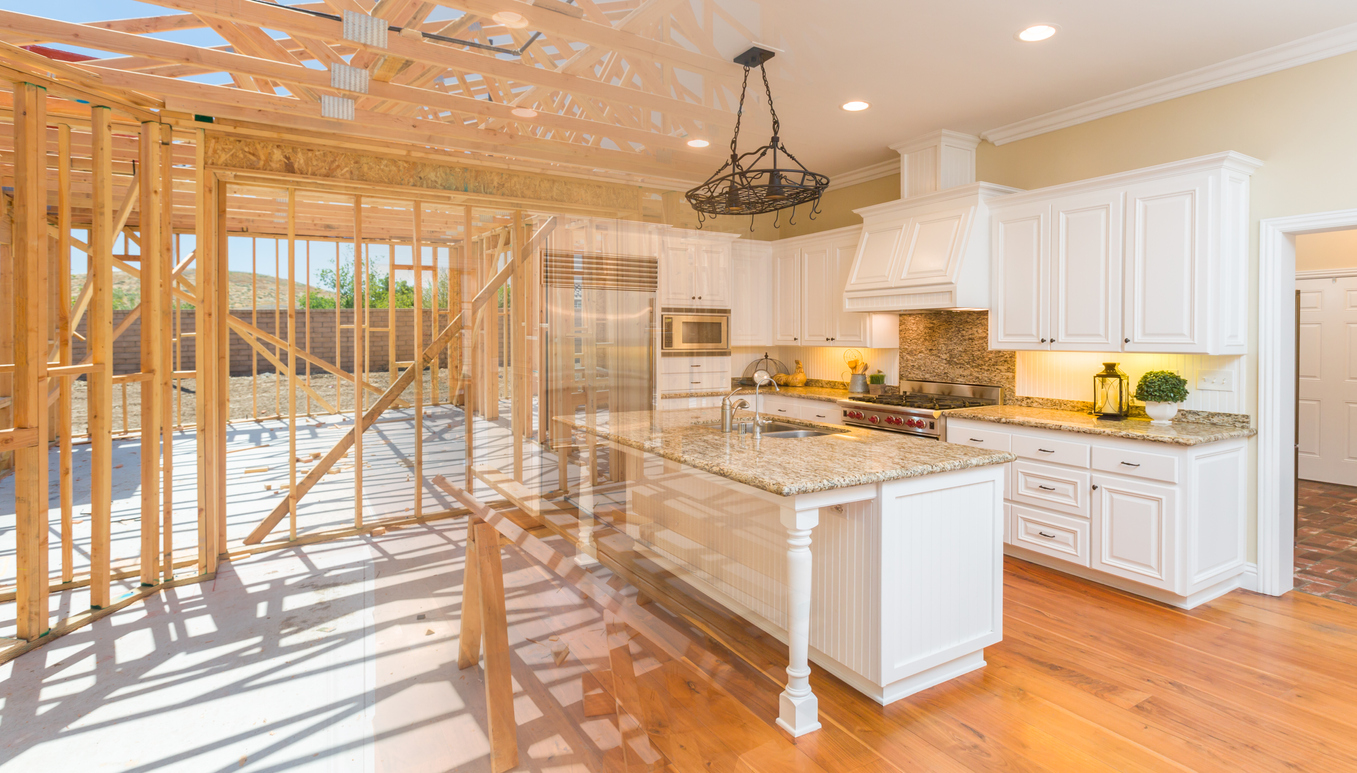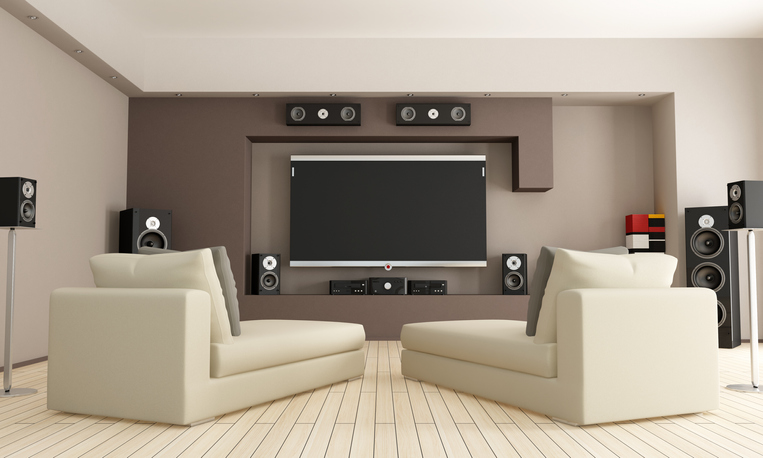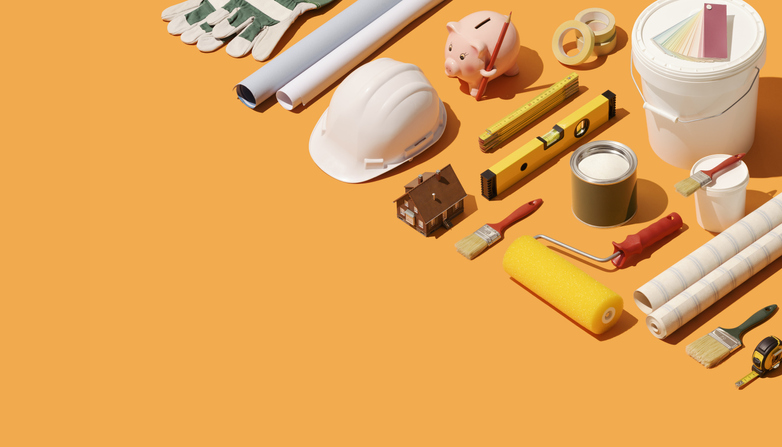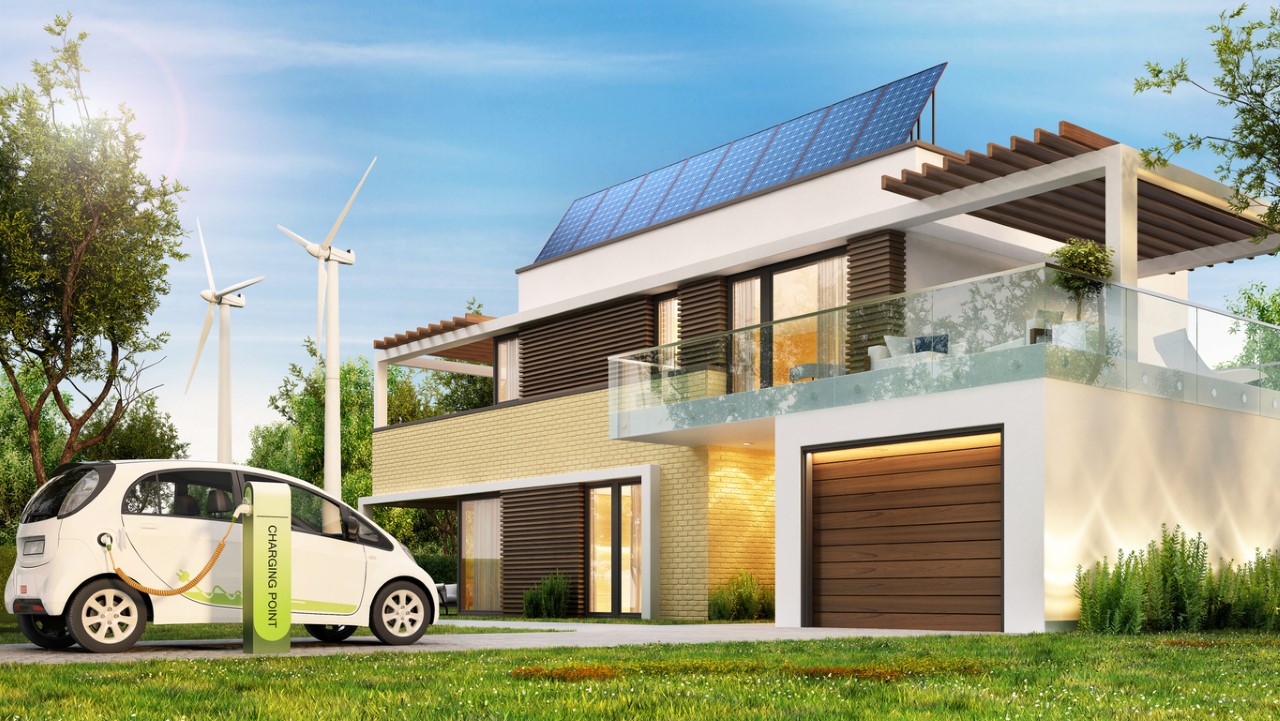Are you ready to get creative? Are you planning a home extension? There are many benefits of adding a home extension and the wide world of home renovations is full of endless options that will add to the value of your home and your quality of life if you do it right. This article will give you a detailed outline of how best to plan, get started, and what potential pitfalls to avoid to save time and money when building a home extension.
In the past few years, the rate that homeowners are embarking upon expansions and improvements has risen dramatically. Adjusting to a more home-centric life has given many of us the impetus to get going on projects that make our home spaces more user-friendly and functional. Adding an extension to your home, whether that means a bump-out, a basement suite, a bigger garage, or a whole new floor, is an amazing way to stay in a neighborhood you love without moving houses.
Top Reasons Why Homeowners Add Home Extensions
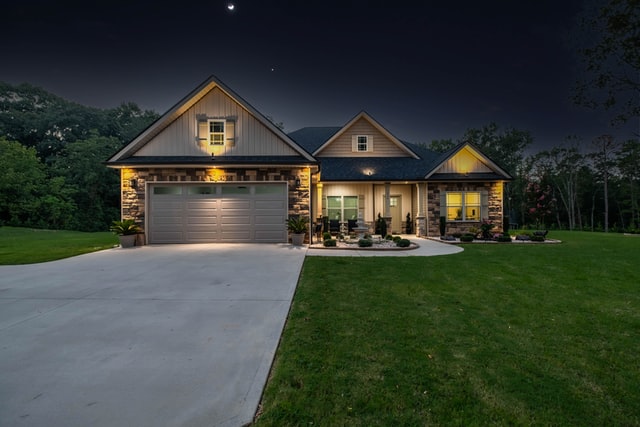
There are many benefits of a home extension or addition. Here are some of the top reasons to consider this type of construction:
- Practicality – Your home might have been designed by a developer, the original homeowner, or someone with niche needs that don’t match yours. The point is unless you’re adding onto a home you did the original design of, that space likely doesn’t reflect what your current needs are. Adding an extension to your home allows you to personalize your space for what you and your family currently need.
- Extra Income – An Accessory Dwelling Unit (ADU) is a fancy way of saying a legal suite that you can rent for additional income. An ADU is an additional, independent living unit existing within the home or as an attached accessory. There are different types of ADUs, if you want something smaller than a regular ADU, you can opt for building a JADU (Junior Accessory Dwelling Unit), or if you want something separate from living space you can go for a DADU (Detached Accessory Dwelling Unit); these are detached from the house itself, and are also called backyard cottages or mother-in-law apartments. Perhaps one of the best ways to build out an additional income stream in your existing space is having a rental unit in your home that gives you the ability to monitor your tenants and ensure they’re abiding by the lease guidelines — not to mention it helps you cover your mortgage payment. The benefit of having a rental suite in your home, as opposed to purchasing a rental property, is that you can dip your toe into the landlord pool without committing to a second mortgage, property taxes, insurance, etc. One important consideration is whether your local zoning laws allow for ADUs. More and more localities are supportive of ADUs, but many jurisdictions either ban them outright. Even if local or state law allows ADUs, some permitting offices fail to approve permit applications. In California, for instance, state law allows zoning throughout the state, but many local governments are resisting by dragging their feet on permit applications. Before you commit to building an ADU, make sure that your local zoning laws allow it AND that your local permitting authority has a recent history of approving ADUs similar to your plans.
- More bedrooms – Many families find themselves in the conundrum of wanting to stay in their current home and grow their families. If your property allows, building an additional bedroom might be the best option. You’ll save the cost of moving while increasing your property value simultaneously.
- Value – Adding usable square footage to your home adds value, for example, ADUs or granny flats add value to the property. There are some exceptions where a home extension wouldn’t add much value, like adding a massive addition to your home that makes it garishly stand out against other houses in the neighborhood or adding on a very niche room that isn’t generally useful and would require renovation for a new homeowner to use (think a mini-rock climbing gym).
- More living areas – As people, generally, we are happier when we have both shared space for community and privacy. Being able to retreat and relax without having to share space with someone else helps with mental health and makes your family more likely to be happier spending time together when they can also be alone. You might put a bonus room over your garage as a games room, which will have the dual effect of creating a fun space for your family and getting them out of your living room so you can kick back and read or watch your favorite shows in peace.
- Storage – You don’t necessarily need to add an intricate and spacious room to your home to impact your quality of life. Adding on a bump-out and making it a storage room that’s heated and weatherproof gives you all kinds of options to get the clutter out of your home, so it’s peaceful, tranquil, and you know your things are safely stored.
- Lifestyle changes – You never know what curveballs life will toss right into your path. It would have been unfathomable to consider how much of the world was working at home several years ago. Perhaps you want to build a home office, gym, or room to house your side-hustle. Giving yourself that space will open up other areas of your home and help you not feel cluttered and crowded.
- Living area – A very common and very impactful home addition is to push back the outside wall of your home, giving you more living space. Even four or five feet makes a huge difference to your interior space and doesn’t eat up your whole yard. Maybe you moved into your home with your partner and first child, and now there are four or five family members — adding even an extra few hundred square feet can make a big difference!
- Makeover – Enlarging an existing room or adding a new area to your home gives you the opportunity to laying out and designing it from scratch. New flooring, new color palette, or even new furniture! Here’s where you can get creative. You can either change the style (in the case of a pre-existing room enlargement), or make something completely new.
- Saves you from having to move – Selling your home and the costs of moving are crazy expensive. Even if you don’t splurge on movers and do it yourself, it’s a costly process that takes a lot of commitment and planning. Not to say that putting an addition on your home doesn’t take commitment and planning, but when you’re done, instead of paying realtors, lawyers, and movers, you’ve used that money to pay a contractor to increase the value of your home.
Factors To Consider When Planning For A Home Extension
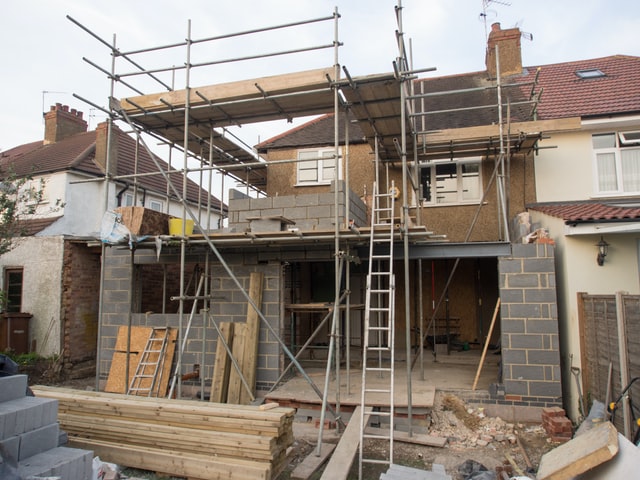
We can’t get away from life’s practicalities, and home building is no different! Here are the essential factors to consider for a home extension before you commit:
- Building regulations – check with your local authorities for building regulations and any permits needed. While a good contractor should be knowledgeable about this, you definitely want to do your own research firsthand.
- Verify if your home foundations are strong enough – If you’re considering going up or out on an upper floor, you’ll need an engineer to confirm that your existing structure can support, or be modified to support, more weight.
- Evaluate if you will be able to live on-site during the home extension. Living in your home during construction like this isn’t always possible. Talk to your contractor about the logistics and work out how long you might need to be away. If you can work in a family vacation during a week that you can’t be in your home — bonus points!
- Have a contingency budget – The only guarantee of renovations and construction is that it will take longer and be more expensive than you think. Make sure you’re not working on a razor’s edge budget, or you might find yourself in trouble when you get to the final stages. This isn’t to say that you shouldn’t do your extension, but consider scaling back to leave yourself wiggle room in your budget. Budgeting your home extension is crucial to having a smooth experience.
Top 5 Mistakes to Avoid When Building a Home Extension
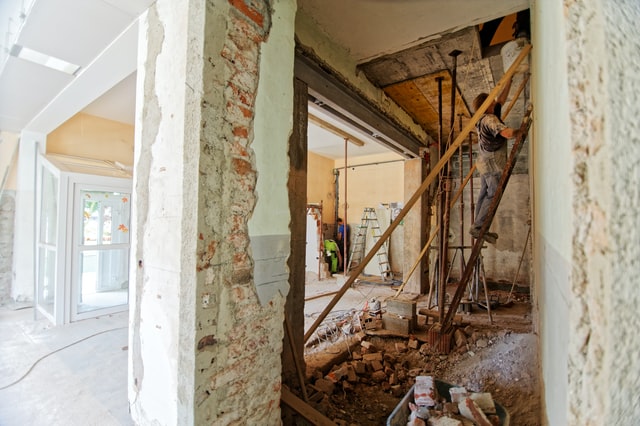
Here are the surefire things that will trip you up during your construction project — but don’t worry, now you know ahead of time, so you’re ready!
- Starting work at the wrong time of the year – If you’re in a climate with seasons that are more conducive to construction, make sure you’re planning to have your work done during the right time. The last thing you want is to have a frigid house in November because you started construction too late in the year.
- Having a construction site that’s accessible to children – Take every precaution you can to keep young children out of construction areas and explain to them the dangers of going in there. It might be an intriguing place for curious kiddos, but even a construction zone in your own home is dangerous for little ones.
- Forgetting to get the right insurance – Depending on your location and insurance company, you might need to carry additional or specialized insurance to have renovation work done, especially if you’re planning to live in your home for part or all of the construction time.
- Not using dust barriers – You’d be bowled over by the amount of construction dust a renovation creates and how easily it gets all over the rest of your house if you don’t use dust barriers. Be vigilant with your contractors, or you’ll be cleaning up construction dust for years to come — trust us!
- Forgetting to factor in the boiler, heating, and cooling system – If you’re putting in a rental suite or addition with another bathroom, remember to factor in the additional costs for hot water, heating and cooling once your renovation is complete. It might just be a higher utility bill, but depending on your current hot water, heating, and cooling needs, you may need to put in a bigger boiler, or an additional HVAC system too.
How to Save Money on a Home Extension Project
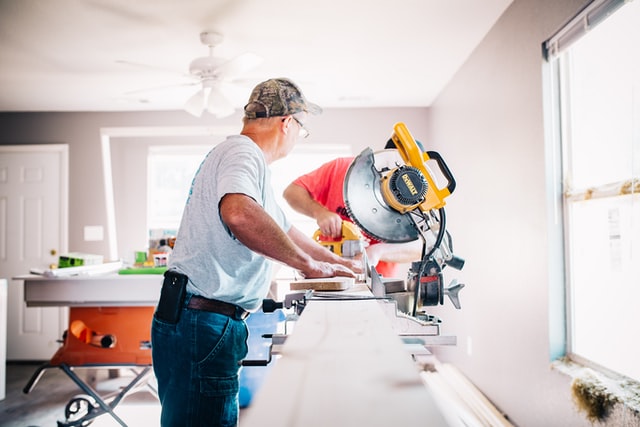
Here are some ways to save money on your home extension — it’s possible if you budget and get crafty!
- Define the size and design of your extension based on what you actually need. At the beginning of the brainstorming process, it’s easy to go big in terms of space and details, but make sure you’re reasonable and factor in the entire cost of your final project.
- Ask for multiple contractor quotes. It might seem like an apple is an apple, but in this case, different contractors can be wildly more or less expensive. There are a few factors to consider besides the price when choosing a contractor like verifying if they have a license and insurance, or any legal disputes, among others. Don’t get discouraged if your first quote is way outside your budget. Chances are, if your budget is realistic, you can find a quality contractor or home builder that’s within your price range.
- Re-use materials. Unless the wood is rotten or damaged, much of what gets torn out should be able to be reused again. This isn’t standard practice for most contractors, who have a tendency to put everything from a demo into a dumpster and use all-new material unless you specifically ask. So, work with your contractor and see what you can reuse.
- Choose materials wisely. Spend some time researching materials and, if you’re cost-conscious, see what you can find at building material overflow stores, where builders will drop off excess material that gets sold at a fraction of the price. These are excellent places to peruse for all sorts of materials, from wiring to light fixtures, carpets, and more.
- Keep existing plumbing and electrical wiring in place whenever possible. Moving electrical or plumbing can get expensive. Your contractor will do whatever you ask, but if you’re smart, you’ll map out your existing wiring and plumbing and use that infrastructure instead of putting in something completely new.
- Prioritize the parts you care about and balance them with those not as significant. Get used to the idea of rating how important each feature of your addition is to you and giving it that level of priority. For example, maybe you’re expanding your living room. While you’d like a picture window, it’s a 2/10 in importance compared to having a wood-burning fireplace, which might be a 9/10 on your personal importance scale. It’s all relative! That way, if something goes over budget, you know what you can live without and what you absolutely can’t.
Embarking on a home extension is a super exciting time, and trust us, you’ll be so happy a few months in that you went through the planning and guidelines from this article. Whether you’re creating a new ADU for Airbnb guests, a new bedroom, or a leisure suit, adding on to your home is a great way to increase functionality, personalize your space, and add value to your property. Hopefully, these tips and tricks will help you along with your exciting endeavor.
